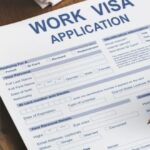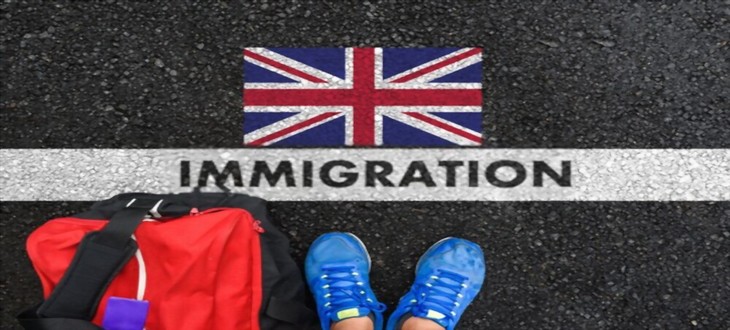A new set of UK immigration rules, spelling out stricter protocols for asylum seekers, have sparked a heated debate across the country.
Recently, UK Home Secretary, Priti Patel, announced the details of her New Plan for Immigration. The newly introduced policy will deeply impact the lives of refugees hoping to seek a safe haven in the UK.
According to the proposed UK immigration rules, the way an individual arrives in the UK will have a bearing on their asylum claim and status. Migrants who come to the UK via illegal routes would be indefinitely liable for removal.
The move is being termed ‘the biggest overhaul of UK’s asylum system in decades.’ The government claims that the new policy would halt undocumented immigration and discourage people-smugglers from operating in the UK.
The UK home secretary insists that her New Immigration Rules are ‘faster, fairer and more effective at helping those in need while cracking down on criminality.”
But immigration experts and refugee rights activists disagree. According to them, the new plan for asylum seekers will establish a ‘two-tier system’ that can be called ‘anything but fair’
Since this new plan is going to affect those who wish to seek safety in the UK, let’s take a few moments to fully understand it.
The Proposal: New Plan for Immigration
The newly proposed UK immigration rules establish a ‘two-tier system’ that distinguishes refugees on the basis of how they enter the UK.
Under the Immigration Rules, those who arrive in the UK by illegal routes like small boats would be indefinitely liable for the removal, even if they have been granted asylum.
Furthermore, those entering the UK illegally would be further penalised with restricted family reunion rights and limited entitlement to benefits.
Presumably, the Home Secretary has pledged to make every possible effort to remove immigrants who enter the UK through routes deemed ‘illegal’ by the government, after having passed through ‘safe countries’ where they ‘could’ve and should’ve applied for asylum.’
Patel’s plan also affects the status of those migrants who have entered the UK safely through illegal routes. Upon the success of their claim, they will be granted a new temporary protection status instead of an automatic right to settle. Such individuals will also be regularly reassessed for removal from the country.
According to details, the Home Office will also open new ‘reception centers’ for asylum seekers to offer them “simple, safe and secure accommodation.”
Refugee Resettlement
The new plan for immigration also makes some allowances for migrants who enter the UK through what the government terms ‘safe routes.’
Under the plan, immigrants who enter the UK through a ‘safe and legal resettlement route’ would be awarded an indefinite leave to remain immediately upon their arrival.
It is worth mentioning that under the existing UK immigration rules, resettled refugees can acquire permission to remain in the country for up to five years after which they need to re-apply for indefinite leave to remain.
The Context
The controversial UK immigration rules proposed by Priti Patel come against the backdrop of refugees arriving in the country in small boats across the Channel last year. The incident caused some political commentators to speculate that Prime Minister Boris Johnson was frustrated with how Patel handled the situation.
The figures do not support the notion that the UK is experiencing a surge in the number of immigrants.
According to official statistics, the number of asylum applications received in the UK last year actually plummeted by nearly a fifth because alternative means of transportation – such as lorries and buses – were affected by the COVID-19 crisis.
Criticism from the United Nations
While decrying the UK’s new plan for immigration, United Nations High Commissioner for Refugees (UNHCR) has pointed out that there is no blanket ban barring asylum seekers from passage through safe countries to reach the UK.
A spokesperson for the UN refugee agency emphasised, “Anyone seeking asylum should be able to claim in their intended destination or another safe country.”
“Some claimants have very legitimate reasons to seek protection in specific countries, including family or other links,” they explained.
According to the UNHCR spokesperson, while it is true that the 1951 convention on the status of refugees (applicable in the UK) does not provide the refugees an unrestricted right to pick a country of asylum, it does not oblige them to apply in the first safe country they access either.
Experts Warn of “Unjust Changes”
Priti Patel’s New Plan for Immigration has been lambasted by people from all walks of life.
Quite recently, an open letter signed by more than 450 immigration experts and activists declared that the Home Secretary’s new plan bypasses international law and is purely based on hollow assertions.
“When government policy closes down safe and legal routes, people are forced to take more perilous journeys,” asserts the academic letter.
Criticising the new plan, the letter states that there are “distinct and deeply troubling” echoes of the Australian system, which “vilifies” asylum seekers who have no option but to travel through irregular routes to reach safety.
“These are not illegal journeys, as claimed by Home Secretary Priti Patel, because under international law one cannot travel illegally if one is seeking asylum,” reads the letter.
The policy also drew criticism from Enver Solomon, the chief executive of the Refugee Council . “The government is seeking to unjustly differentiate between the deserving and undeserving refugee by choosing to provide protection for those fleeing war and terror based on how they travel to the UK,” he said.
“The reality is that, when faced with upheaval, ordinary people are forced to take extraordinary measures and do not have a choice about how they seek safety. The government is effectively creating a two-tier system where some refugees are unfairly punished for the way they are able to get to the UK,” he explained.
“This is wholly unjust and undermines the UK’s long tradition of protecting people,” he said. “All refugees deserve to be treated with compassion and dignity, and it’s a stain on ‘Global Britain’ to subject some refugees to differential treatment,” he added.
Need UK Immigration Advice?
Email on info@cot.uim.temporary.site for help from Jes for your personal situation. Follow 4A Law for more advice on UK visas and immigration.






You must be logged in to post a comment.